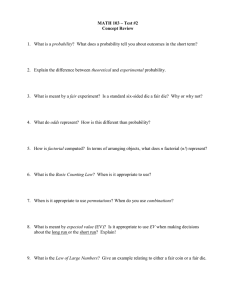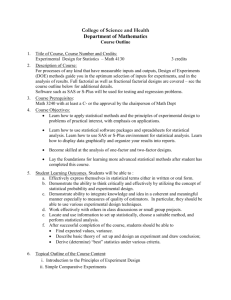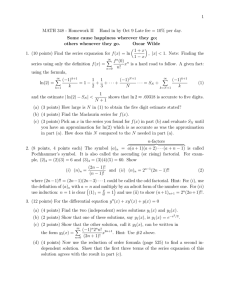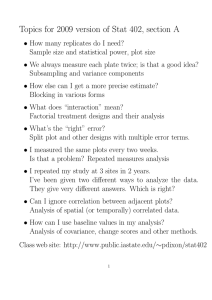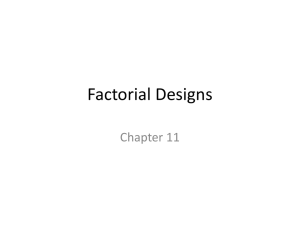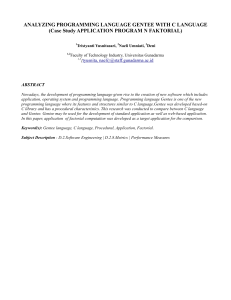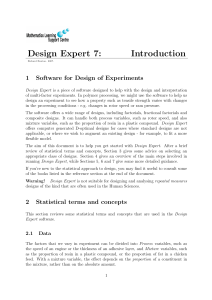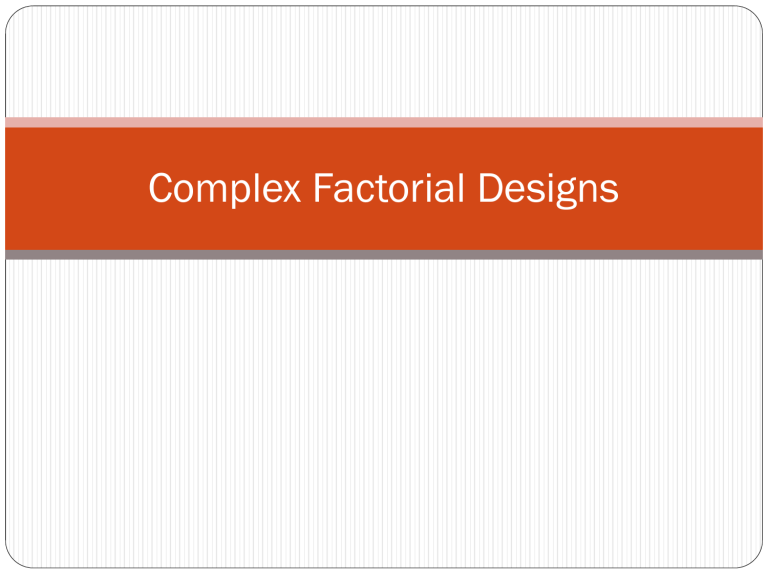
Complex Factorial Designs Factorial Designs Studies with a complex design explore the effects of more than one factors on the dependent variable. Specially important in several economic and social phenomena. Two types: 1) Simple factorial designs (two-factor-factorial design) 2) Complex factorial designs (multi-factorfactorial design) Complex Factorial Designs A design in which the effects of varying more than two factors is considered. Considers three or more independent variables simultaneously. Extraneous variables to be controlled by homogeneity are called control variable and the independent variables are called the experimental variables. 2x2x2 Complex Factorial Design •Used in the case of three factors with one experimental variable having two treatments and two control variables, each having two levels. III 21 Cont. Possible to determine the main effects of three variables. The interactions between each possible pair of variables can also be determined, which are called First Order Interactions (two variables are considered at a time and one is ignored). The interaction between variable triplets can also be determined, which are called Second Order Interactions (Complex factorial analysis). The combined mean of data in cells 1,2,3,4 for treatment A is compared with combined mean of data in cells 5,6,7,8 for treatment B to determine the main effects of the experimental variable. Similar can be done to determine the effects of control variable 1 and control variable 2. Complex factorial design can be generalized to any number and combination of experimental and control independent variables. Advantages and disadvantages Provide equivalent accuracy as happens in case of experiments with only one factor with less labour. Effects of two or more variables can be determined in a single experiment, there it can utilise researcher’s limited resources. The interaction effects can be determined. One challenge in factorial designs is that interactions can make it hard to interpret main effects if the interaction is large enough to mask the main effect. It can be time-confusing. Example If we want to determine the effects of sleeping less than 6 hours a day on performance in exam, with attention to IQ score and preparedness for exams, the complex factorial design can be utilized. 8 group of subjects will be made, with each group having a different combination of treatment A or B, IQ low or high and preparedness level high or low. The combined mean of data in selected groups will be compared with groups in respect to the effect of which variable we want to determine. Thank You!
